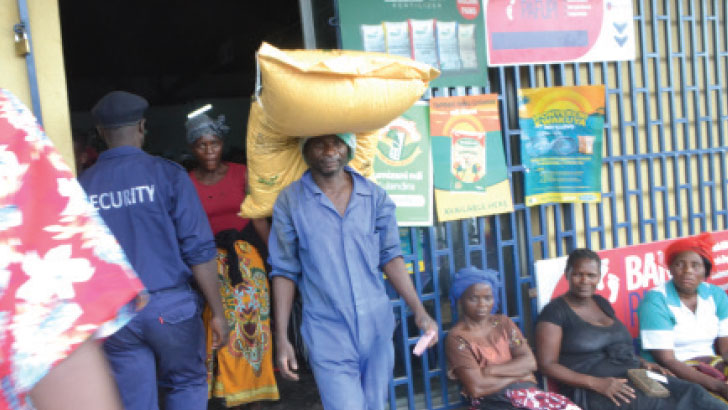Pressure mounts to review AIP
Pressure is mounting on government to shift focus from the Affordable Inputs Programme (AIP) to provision of extension services and commercialisation to achieve aspirations of the Malawi 2063 (MW2063), the country’s long-term development strategy.
A report from a study on Malawi conducted by London-based think-tank Legatum Institute titled ‘Pathways to Prosperity’ launched in Lilongwe on Tuesday, challenged government to enhance agricultural productivity through mindset change by moving away from fixed subsidies to increased private sector participation, among others.

The report suggested a change of approach in both agriculture and infrastructure to increase productivity. It suggested that instead of subsidising inputs for farmers, government should create space for the farmers by giving them incentives to increase agricultural productivity and locally-led economic growth.
In his presentation, Legatum Institute director of policy Stephen Brien observed that Malawi’s progress in the past 30 years has been slow, as such, improving quality of agriculture and enhancing rural transport are among the key issues that can reverse the trend.
He said: “The idea of supporting famers to increase their productivity is an important one, but subsidising inputs may not be the most effective way of inclusive connectivity to assist the farmer, and our view is that focusing more on extension services and commercialisation has better long potential than subsidising inputs.”

Since the 2005/06 fiscal year, the government has implemented Farm Inputs Subsidy Programme which in 2020 was rebranded and expanded as AIP, for smallholders to raise productivity and achieve national maize harvest to meet the needs of the population.
According to the report, there is need to invest in targeted support schemes through cooperatives and associations.
Reads the report: “The transformation must be phased, with clear plans and policies that act as building blocks for further development. Policies should be targeted to each sector of the economy.
“Rather than targeting immediate needs or consequences, government policies must address underlying and basic causes of development challenge.”
In an interview, Institute for Policy Interaction board chairperson Nandini Patel, who was one of the participants during the dissemination, said the report challenges the leadership to do away with some of the old ways of doing things
She said: “We have to deal with the mindset, that these are the ways that will work today, and that they bring real change and then bring necessary change to our attributes and behaviours.”
Ministry of Agriculture earlier said that due to rising global prices of inputs, especially fertilisers, farmers will likely pay more than the K7 500 they paid last year to redeem inputs AIP.
Our sister newspaper, Weekend Nation reported that a whopping K900 billion has been spent on subsidies the past 17 years while government spent another K500 billion to feed the same beneficiaries
Fertiliser Association of Malawi data shows that in the past five years, the annual fertiliser market in Malawi is between 350 000 to 370 000 metric tonnes (MT).
Following the launch of the AIP, which almost quadrupled the number of beneficiaries to 3.6 million from 900 000 under its forerunner, the requirement has increased to between 400 000 and 450 000MT.
In the 2022/23 National Budget, AIP has claimed K109.5 billion, representing about 85 percent of the agriculture sector budget. The allocation is a K33 billion decline from the previous year’s K142 billion allocation.





